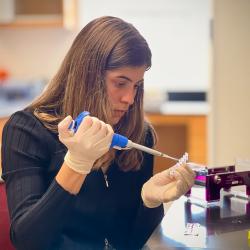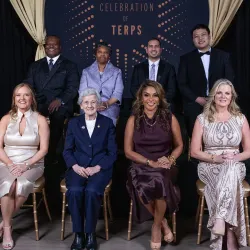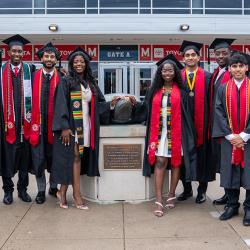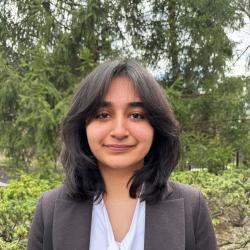UMD Alumnus Krzysztof Franaszek Wins Soros Fellowship for Medical School
Krzysztof Franaszek, a 2013 University of Maryland graduate in biological sciences and economics, received the Paul & Daisy Soros Fellowship for New Americans.
This competitive fellowship is awarded each year to 30 New Americans, immigrants or the children of immigrants who are pursuing graduate school in the United States. Each fellowship includes up to $90,000 in support for two years of graduate study. Selection criteria emphasize creativity, originality, initiative and sustained accomplishment.
Franaszek is currently pursuing his Ph.D. in pathology at the University of Cambridge, with the support of Gates Cambridge Scholarship that he received in 2013 and was renewed in 2014. His work focuses on using novel molecular genetics and bioinformatics techniques to study protein expression in cellular and viral systems.
Franaszek will use the Soros Fellowship to pursue his medical degree at the Harvard Medical School-MIT Division of Health Sciences and Technology.
Born in Kraków, Poland, Franaszek immigrated to the United States when his mother, a neuro-pharmacologist, and father, a theoretical physicist, worked as postdoctoral researchers at federal research institutions near Washington, D.C. Growing up, his family divided its time between Maryland and Poland’s Silesia region.
As a Howard Hughes Medical Institute undergraduate research fellow at the University of Maryland, Franaszek conducted research in the laboratory of Department of Cell Biology and Molecular Genetics Chair Jonathan Dinman, looking for hidden points of vulnerability in the ways some viruses, like HIV and SARS, encode the proteins that give them structure and potency. On weekends, he was an emergency medical technician for the Branchville Volunteer Fire Company, which serves communities near the campus. Some of his patients are sick with the same viruses he seeks to understand and combat in the lab.
Franaszek’s Ph.D. research in the laboratories of Ian Brierley and Andrew Firth builds on his undergraduate work, focusing on eukaryotic genetics and elucidating the rules that govern protein synthesis under unusual contexts.







